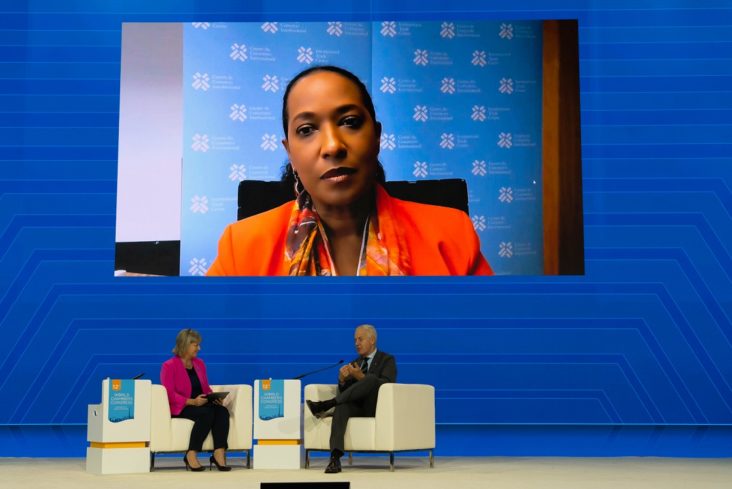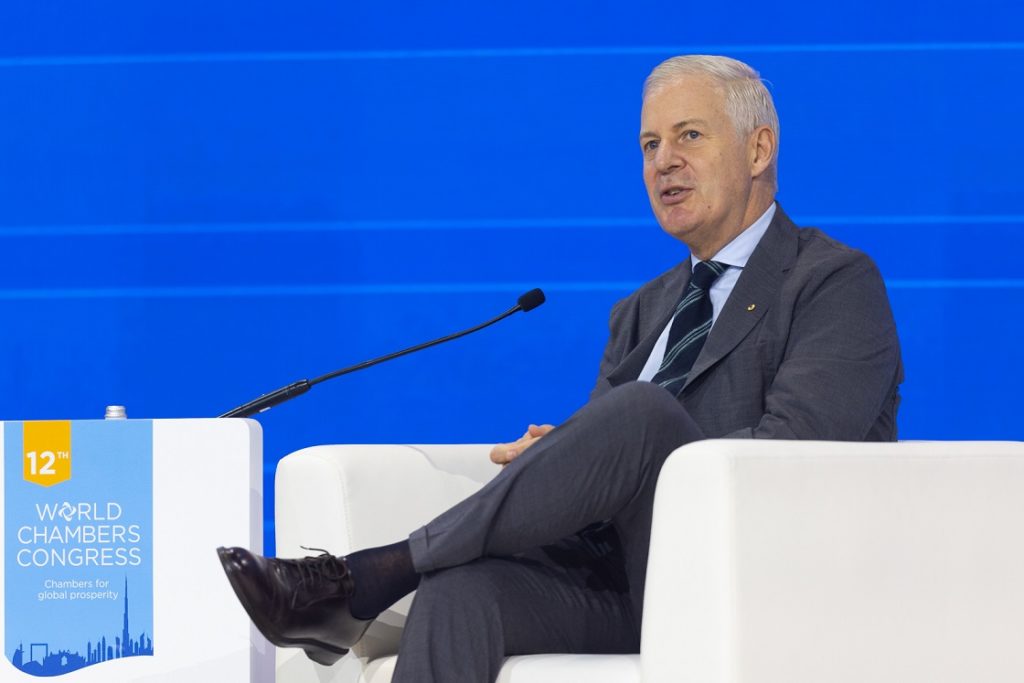12th World Chambers Congress In Dubai Examines Covid-19’s Impact On Digital Trade

The Covid-19 pandemic exposed the digital divide and highlighted the need for governments to close this gap in order to drive cross-border digital trade, especially among SMEs in developing countries, industry experts said at the 12th World Chambers Congress (12WCC) in Dubai today.
During the session, John W.H. Denton AO, Secretary General of the International Chamber of Commerce, Paris, commented on the vital role that both SMEs and MSMEs play and said more needed to be done to offer negotiable instruments that support digital trade.
“If we want to ensure SMEs and MSMEs in developing economy have the best shot we need to ensure they access digital tools and operate without barriers to make it as easy and effective as possible. Hard work has to happen around a global agreement,” he said.
Pamela Coke-Hamilton, Executive Director, International Trade Centre, Geneva, spoke on the importance of preparing SMEs for these changes, but said that the lacko of connectivity was a challenge in this respect.
“The lack of connectivity is a major roadblock – 40% of the world’s population is unable to access the Internet, mostly in rural areas without infrastructure, and in cities where it is available but unaffordable. Data is substantially more expensive in developing countries. Affordable internet is when 1GB of data is priced at 2% or less of average monthly income. International cooperation is crucial – we need to build digital skills and connect SMEs to the digital market,” she said.
A separate session titled Leading with vision: Navigating the new normal assessed the impact that Covid-19 had on businesses and chambers of commerce around the world as well as its role in accelerating digital trade. The participants acknowledged the fact that a crisis such as the pandemic could easily happen again, with contingency plans needing to be devised – albeit adjusted to the local community.
Hans-Jörg Schmidt-Trenz Chair of the World Chamber Federation Membership Committee; Past CEO Counsellor, Hamburg Chamber of Commerce, Germany stressed the need for chambers to be prepared for all eventualities.
“We have to prepare for catastrophes and we need to have some luck. Luck in itself is not enough – everyone has to build up reserves. Covid was a special kind of disruption and something we were completely unprepared for – but it will happen again. Covid was like the third world war but without the bombs,” he said.
Yassin Al Suroor, Founder, President & CEO, A’amal Group; Vice-Chair, International Chamber of Commerce, Saudi Arabia, said that in the Middle East governments helped businesses, with GCC governments having provided incentives to the private sector.
“During the pandemic, businesses would not have survived without a contingency plan. My request to chambers is to share good business cases with others. We need to come up with a business model for all chambers,” he said.
Ide John Chinyelu Udeagbala, National President of the Nigerian Association of Chambers of Commerce, Industry, Mines and Agriculture said the Covid situation was markedly different in Nigeria and Africa in light of the challenges they experience on a daily basis.
The 12th World Chambers Congress concludes tomorrow (Thursday, November 25). Co-organised by Dubai Chamber and the ICC-World Chambers Federation, the event bears the theme Generation Next: Chambers 4.0 examines the role that chambers can play in a post-pandemic, era that is witnessing an acceleration of digitalisation and a new emphasis on good governance, social issues and environmental concerns.



